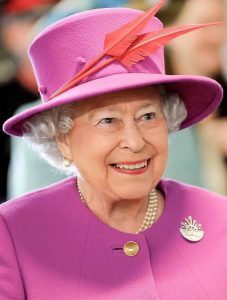
Longest seating female monarch, Queen Elizabeth II, yesterday, marked 70 years on the throne.
The queen is the first British monarch to celebrate a Platinum Jubilee, and is spending the day privately.
The Prince of Wales, Prince Charles, her first son, while paying his tributes to the queen for reaching 70 years on the throne, said in a statement: “The queen’s devotion to the welfare of all her people inspires still greater admiration with each passing year.”
Many more have congratulated the Queen on this historic day, including Boris Johnson, Theresa May and David Cameron, three of the 14 British prime ministers to occupy No 10 during her reign.
Johnson said: “I pay tribute to her many years of service and look forward to coming together as a country to celebrate her historic reign in the summer.”
His predecessor, Mrs. May, described the monarch as “an extraordinary woman, who has dedicated her life to the service of her people and our family of nations.”
Cameron said: “There can be no finer example of dignified public duty and service.”
Leader of the opposition, Sir Keir Starmer, echoed these sentiments, saying he will like to express his “deepest thanks” for 70 years of “unparalleled public service.”
The Labour leader added: “Her Majesty The Queen has been one vital and valued constant in an ever-changing world, representing security and stability for our country, during the ups and downs of the last seven decades.”
Archbishop of Canterbury, Justin Welby, also praised the queen “for her dedication to us all, and her faithful witness to Jesus Christ.”
Also, Head, Security and Strategic Studies Division, Nigeria Institute of International Affairs (NIIA), Dr. Joshua Bolarinwa, said that the 70 years reign of Queen Elizabeth II, showed her intention to facilitate decolonisation, especially in the yearly stage.
“Her desire to end colonisation made her visit Africa and other countries where Britian had colonies,” he said
He noted that when she came to Nigeria, her intention was to give the nation its independence, but the politicians were not ready at that time, which made the independence stall to 1960. When she got to Ghana they were ready for it, that’s why they got their independence before Nigeria.
Politically, the queen has had a lot of impact in development and multi lateral diplomacy in Africa and around the world.
He, however, noted that the Queen as the head of Commonwealth, has a lot more work to do, as the wealth is not equally distributed among nations in the association.
According to him, initially the membership of the Commonwealth was limited to former colonies of Britain, but around 2008, it became an all comers affair, which has affected the potency of the body.
“Even Nigeria has not been really serious with the Commonwealth, as it is with AU, ECOWAS summits and functions.
“There is need to appraise the reason that brought them together as a multi lateral international organisation,” he added.
Bolarinwa called on the queen to improve beneficial relations among the Commonwealth countries.
He emphasised the need to share benefits and technicalities across board, adding that technology should be shared or sold.
He noted that aside from Britain, Australia and Canada, non of its colonies, particularly in Africa, has been developed adequately.
He added that Nigeria-UK should be visa free because of the benefits Britain has got from the country.
Elizabeth Alexandra Mary Windsor was not born to wear the crown. But destiny intervened. As the elder daughter of King George V’s second son, Elizabeth, now 95, was expected to live the life of a minor royal when she was born on April 21, 1926.
But everything changed at age 25, when her uncle, King Edward VIII, abdicated so he could marry the American divorcee Wallis Simpson.
Elizabeth’s father became King George VI, making the young princess heir apparent.
George VI, whose struggles to overcome a stutter were portrayed in the 2010 film “The King’s Speech,” endeared himself to the nation when he refused to leave London as bombs fell during the early months of World War II.
Elizabeth followed her father in leading by example, joining the Auxiliary Territorial Service in early 1945, becoming the first female member of the royal family to join the armed services as a full-time active member. On her 21st birthday, she dedicated her life to the nation and the Commonwealth, the voluntary association of states that grew out of the British Empire.
“I declare before you all that my whole life, whether it be long or short, shall be devoted to your service and the service of our great imperial family to which we all belong,” she said in a radio address broadcast around the world.
In 1952, the young princess embarked on a tour of the Commonwealth in place of her ailing father.
She was at a remote Kenyan lodge, where she and her husband, the Prince Philip, watched baboons from the treetops, when she heard her father had died.
She immediately returned to London, disembarking the plane in black mourning clothes, to begin her life as queen.
She has reigned ever since, with crown and scepter on big occasions, but more commonly wearing a broad-brimmed hat and carrying a simple handbag.
The queen has witnessed the end of the British Empire, the advent of multiculturalism, the rise of international terrorism, the challenges posed by Brexit and the COVID-19 pandemic. In a world of relentless change, she has been a constant, representing the U.K.’s interests abroad, applauding the nation’s successes and commiserating in its failures, and always remaining above the fray of politics.
That constancy should earn her a royal epithet like those of her predecessors such as; William the Conqueror, Edward the Confessor and Alfred the Great, said royal historian Hugo Vickers.
“I’ve always thought she should be called Elizabeth the Steadfast,” Vickers said. “I think it’s a perfect way of describing her. She wasn’t necessarily expecting to be queen, and she embraced that duty.’’





